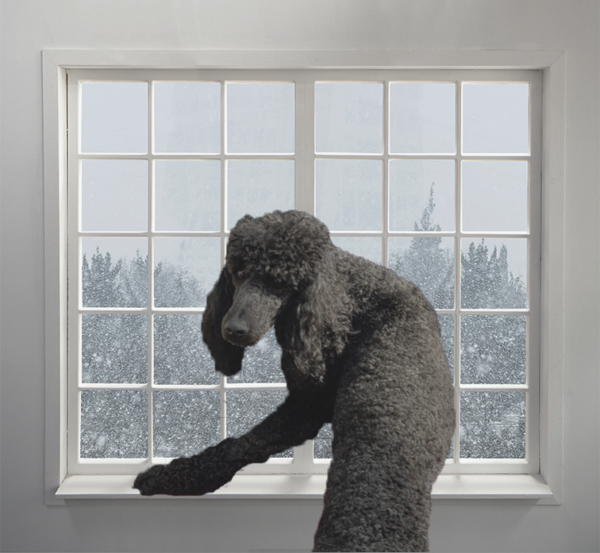“I’m sorry. I love you” – a sincere apology, followed by an expression of love. Remove the full stop however and this becomes an entirely different story. The speaker is expressing regret for their feelings of love. Were they wronged? Is their love unrequited? Punctuation matters.
We’re changing things up a little this week, to explore the nerdy, enigmatic and crucial partner of words: Grammar. If words are the building blocks of meaning, grammar is the glue.
Take this sentence: “We’re going to learn to cut and paste kids” – Here, a psychotic killer expresses their deadly intentions. Of course, add a comma before kids, and we have someone teaching a wholesome activity to children. With that in mind, the title of the article needs a comma before Grandma…
Take stresses too.
“I love to dance!” Here, with dance stressed, the speaker emphasises their love of dancing over other activities. Billy Elliot doesn’t want to box he wants to dance!
“I love to dance!” Here, the speaker seems to compare themselves to others, who perhaps fail to share their enthusiasm for the art of dance.
These are examples of the essential role of grammatical devices. In all these statements the words stayed the same but punctuation dramatically shifted the meaning. Punctuation allows us to express ourselves with more sophistication or nuance than words alone can afford.
But grammar runs deeper than this, or perhaps shallower. Some grammatical rules are a little more arbitrary, grounded in conservative formalities or ties to ancient languages.
While getting everything correct isn’t always essential (no one’s pulling Mick Jagger up for his use of double negative in “I can’t get no satisfaction”) we thought we’d catalogue some common mistakes (and some uncommon ones). Having a handle on some of the more nuanced grammatical rules can elevate your professional communications, and prevent corrections from the more linguistically-inclined.
Some common mistakes:
Referring to a brand or entity as ‘they’
In the overlapping worlds of communications/marketing/PR, talking about brands is a huge part of the profession, yet it’s so often done with poor grammar. Take the following sentence:
“McDonald’s has released their new range of burgers”.
As we wouldn’t gender McDonald’s, it makes sense to use “they”. But the business isn’t plural. It’s a brand. As humanising as McDonald’s attempts to brand itself, it remains at the end of the day, an “it”.
“McDonald’s has released its new range of burgers”.
Affect vs. Effect
“My stomach has been effected by McDonald’s new range of burgers.”
This is a common one. The above sentence is incorrect. When you’re talking about something changing another thing, the verb “affect” takes over. You could still use “effect” however you would employ it as a noun:
“The new range of McDonald’s burgers have had a great effect on my stomach”.
And another thing!
Starting sentences with conjunctions is something our English teachers taught us never to do. However, this sentence you’re reading now starts with a conjunction and Microsoft Word has not underlined it in green!
Conjunctions, as the name suggests, join things together. So generations of English teachers drilled into their pupils, that starting sentences with the words and, but because or however was wrong. But it’s perfectly acceptable to do so.
Wordiness
Due to your arrival at this point in the piece, it would indicate that you have read it in its majority and I would like to extend my thanks to you for having done so.
Finally, this is one I sometimes have a problem with. If you want to say something to your readers, spit it out (figuratively). Keep your prose concise and simple to create clarity and avoid boring your readers or you’ll likely sound like you have a something lodged in your something. The meaning conveyed in that sentence above for example, can be offered by three simple words:
Thanks for reading.
It’s important to note that grammar isn’t fixed – it, like language in general, evolves and transforms over time. We’re not speaking like they were in Shakespeare’s times, and people won’t be speaking like we are now in the future. It’s grammatically correct to say y’all now, for example. But maybe we’ll refrain from using that one in professional writing.


The first day of winter is upon us. As we descend into icy darkness I would like to remind everyone of the magnificence of my coat. Poodles are known for their coats; it is often thought of as their defining feature. My coat would probably be my defining feature if it weren’t for my transcendent intelligence (how many dogs do you know that write regular articles?).
Many dogs have a double coat, consisting of a dense undercoat full of short hairs and a top, longer overcoat that gets full in winter. Dogs like these shed often, much to the annoyance of their owners.
Then there are dogs like me. Yes, my fur is soft, elegant and fluffy, but it isn’t burdened with the inconvenience of a second layer. I have a single, dense coat of curled hair. So dense in fact, that when hairs fall out they often remain in the coat. So, in the traditional sense, we don’t shed, but like most humans I need regular haircuts too!
This also makes us more hypoallergenic than others– so even the most fur-sensitive of my readers can pat me and be pretty much undisturbed. It’s also what helps keep me warm.
So, when you wake up feeling glacial and immobilised, dreading that painful walk from the bed to the shower, remember that at least for the most part your four-legged friends are doing fine and rearing to go out. Put on a coat, add a scarf and a hat, maybe even some gloves, grab the lead and enjoy your winter walks, before you know it will be spring again!



